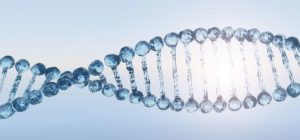Have you ever wondered why you’re not gaining muscle after all the workout and diet you’ve made? Read on to learn why this problem happens.
RELATED: Peptides For Fat Loss And Muscle Building
Causes of Not Gaining Muscle
1. Not Getting Enough Daily Nutrients
Consuming the right amounts of protein and carbs every day is not enough to help you get the right bulk. You need the following nutrients to help you build muscles:
- Zinc (cheese, pumpkin seeds, pulses, eggs, and red meat)
- Vitamin B2 (chicken, eggs, spinach, and cornflakes)
- Magnesium (bran, nuts, seeds, garlic, and green leafy vegetables)
- Copper (sunflower seeds, crabs, and peanuts)
- Vitamin B12 (offal, milk, meat, marmite, and eggs)
- Vitamin D (sunflower seeds, yogurt, eggs, olive oil, and oily fish)
- Omega-3 fatty acids (walnuts, mackerel, salmon, flaxseed oil, and Brazil nuts)
- Selenium (Brazil nuts, whole-meal bread, sunflower seeds, and fresh tuna)
- Vitamin C (citrus fruits, broccoli, and green peppers)
- Iron (bran cereals, sardines, and dried apricots)
- Biotin (almonds, hazelnuts, egg yolks, oats, and peanut butter)
- Calcium (yogurt, sardines, sesame seeds, almonds, and cheese)
You can also include a multivitamin supplement in your daily nutrient consumption.
2. Not Stretching Before and After Workout
Stretching before your exercise allows your muscles to relax and get ready for an intense physical activity.
You also need stretching after your exercise to allow your muscles to cool down. It also helps in the recovery process of your tired muscles.
Without it, you’re increasing the risk of injury and tight muscles.
3. Not Being Mindful of Your Muscle Workout
Not gaining muscle also involves a disconnection between your mind and what you’re doing. Being mindful of your workout lets you experience the following benefits:
- Supports in developing a loving and healthy relationship with your physical being
- Improves the enjoyment of your workout
- Lowers your risk of injury
- Increases the efficiency of your exercise
If you’re enhancing your biceps, for example, you should focus on this muscle and the process of squeezing to maximize muscle building. You need to connect your mind to the process.
Try to look at the muscles you’re trying to work out if you can and then channel your thoughts slowly to the activity.
4. Lifting Weights with the Wrong Form
Lifting weights with a poor or wrong form does not make this activity effective in building muscle. You should be improving your muscles with a challenging weight, and it must be done through repetitions with the right form.
You place more pressure on your tendons and joints than the muscles with a poor form. This can lead to overworking your muscles and then injury.
Follow a tutorial or read articles online on how you should correctly do the form. If you’re at the gym, your trainer can guide you.
5. Not Lifting Enough Weight
Lifting not-enough weights is another reason why you’re not gaining muscle as it doesn’t challenge your muscles. Lift heavy enough weights so you continuously challenge the muscle to adapt to the stress you are putting on it. Implement progressive overload; over time, increasing either the weight for the same reps, the same weight for more reps, or improve your form.
6. Not Consuming Enough Carbs and food
Low-carb diets like the ketogenic meal plan are not advisable for building muscles. If you’re dealing with high-intensity workouts, you need more energy, and this means consuming more carbs.
Sugar converted from carbs is what your body uses as its preferred fuel source. You should take clean carbs from complex ones like sweet potatoes, steel-cut oats, and wild rice.
The amount of carbs you need will vary from person to person.
In order to gain muscle, you also need to consume at least the same amount of calories you burn on a daily basis, AKA eat at maintenance calories, or in a small surplus.
7. Not Having Enough Sleep
Sleep deprivation can inhibit muscle building as it interferes with the repair and growth process of your body. It also increases stress hormones that negatively affect your performance and lower your energy levels.
Getting enough sleep is next to consuming the right nutrition that promotes healthy body recovery and repair. Make time to relax each day to promote better quality sleep.
8. Overtraining
Every time you perform your exercise, your body breaks down your muscle tissue and then repairs it. This means that the more you perform your exercise, the more muscles you’ll build up.
But, if you’re overtraining, your body burns out as it does not have much time to recover. This can result in an increase in stress hormones that can lead to injury or even sickness.
9. Not Drinking Much Water
Two-thirds of water in the body is present in muscle cells. This means that as you use your muscle cells when you work out, you’re also decreasing their water content.
Drink at least eight glasses of water each day to compensate for the water loss.
If you want to be more accurate, you have to drink the equivalent to half your weight in ounces daily. So, if you’re 150 pounds, you should drink about 75 ounces of water each day.
Identifying the reasons why you’re not gaining muscle mass can help you make proper changes in your diet, workout routine, and lifestyle. It only needs your knowledge and understanding of what you should change with what you’re already doing to achieve the bulky muscles you desire.
What other reasons for not gaining muscle can you share with us? Tell us in the comments section below!
Up Next:
- How To Stick To A Diet For Better Weight Loss Resolutions
- Train Your Brain With These 9 Mental Exercises
- Do Women Have Testosterone? Is It Normal?



